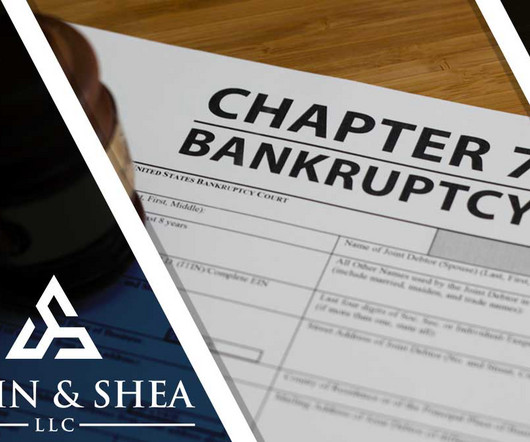What Can I Keep if I File For Chapter 7 Bankruptcy?
Sawin & Shea
SEPTEMBER 27, 2023
Filing for bankruptcy can provide you with a much-needed second chance when it comes to your finances. If you are a victim of debt collector harassment, it’s important to know the debt collection laws, and consider your options for debt relief. What is Chapter 7 Bankruptcy?












Let's personalize your content